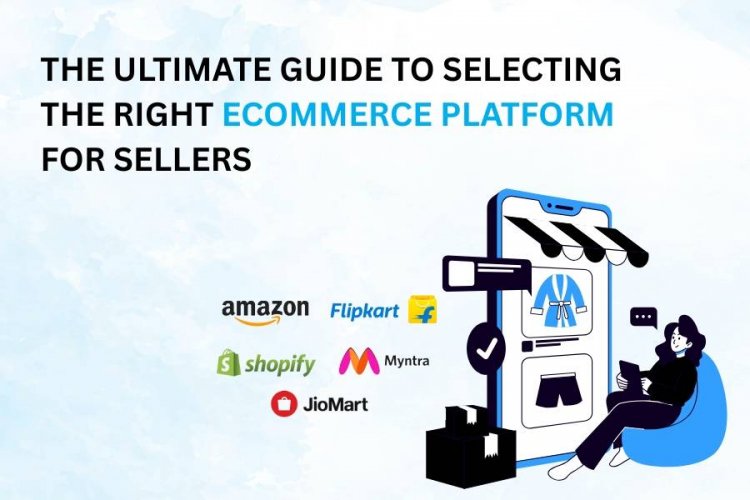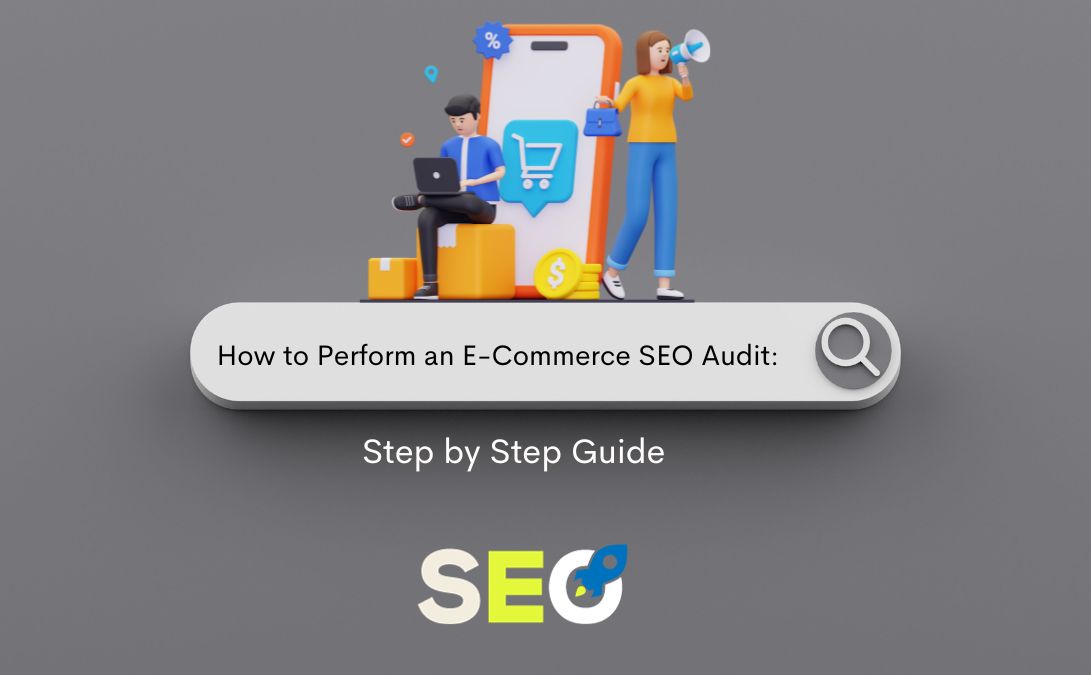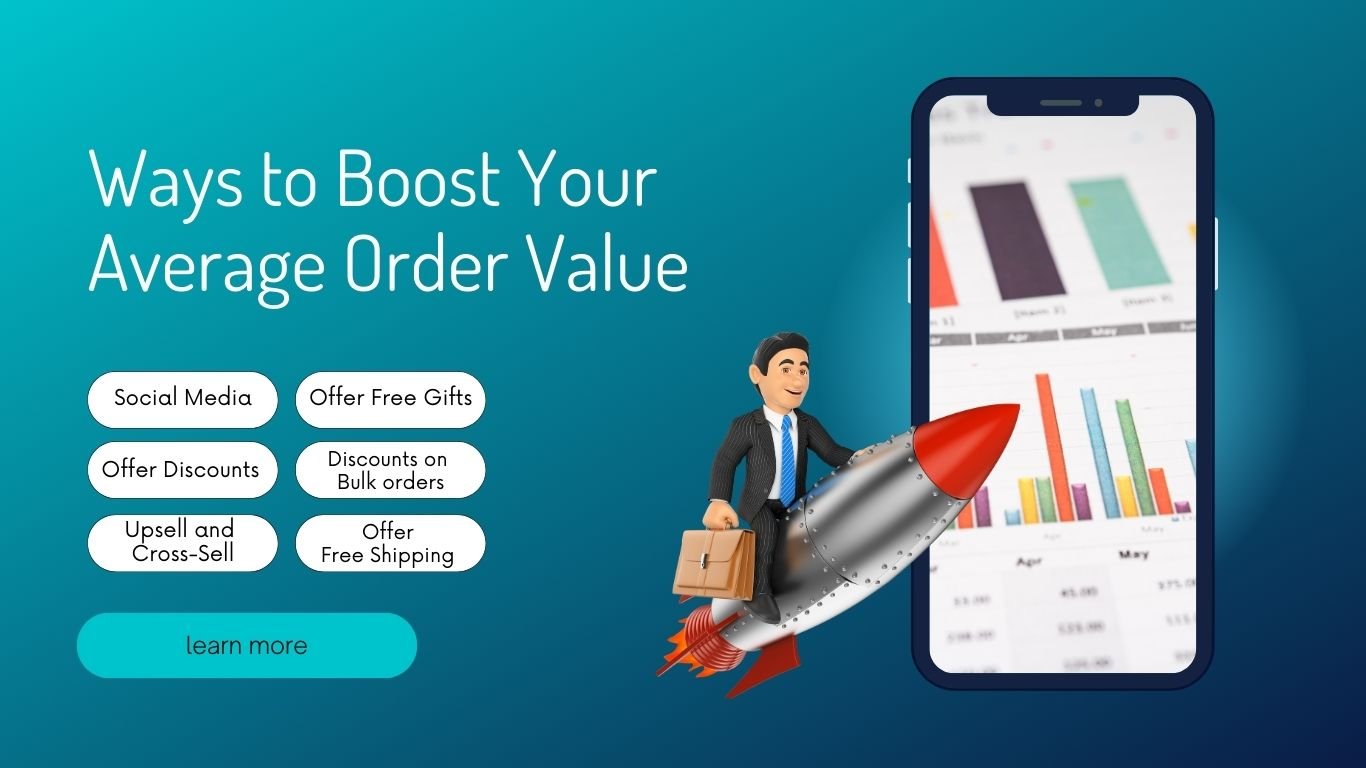The Ultimate Guide to Selecting the Right eCommerce Platform for Sellers

In today’s digital age, selling online has become one of the most profitable ways to reach customers across India and the globe. Whether you are a small business owner or a large-scale retailer, choosing the right ecommerce platform can make or break your online success. In along with so many choices—like Shopify, Amazon, Flipkart, WooCommerce and Meesho—sellers often struggle to find the best fit for their business goals. That’s where understanding your needs, budget, and long-term strategy becomes essential. This ultimate guide will help you select the right ecommerce platform for sellers while also explaining how eCommerce services can simplify your journey from setup to sales growth.
Selecting the Right Ecommerce Platform for Sellers
The ultimate guide to help sellers select the right ecommerce platform for their online business. Find out which platform suits your needs best!
Step 1: Identify Your Business Needs
Before jumping into platform comparisons, evaluate what your business truly requires. Ask yourself:
-
How big is my product catalog?
-
Do I want to sell locally or internationally?
-
What’s my monthly budget for website management?
-
Do I need integration with marketplaces like Amazon or Flipkart?
-
Do I need customer support in multiple languages?
The answers will help narrow down your options. For example, Shopify is perfect for startups seeking ease of use, while WooCommerce suits those who prefer customization. If you plan to sell on multiple channels, investing in professional eCommerce account management services can help you manage listings, pricing, and inventory efficiently.
Step 2: Compare the Leading Ecommerce Platforms
Let’s explore some of the top ecommerce platforms for Indian sellers and their unique benefits:
Shopify
Shopify is a global leader in ecommerce business solutions, offering user-friendly tools, beautiful templates, and built-in SEO features. It’s ideal for sellers who want a hassle-free setup.
|
Advantages |
Disadvantages |
|
24/7 customer support |
Monthly subscription cost |
|
Multiple payment gateways |
Limited design flexibility |
|
Fast website performance |
|
WooCommerce
A WordPress plugin that converts your site into a full-fledged online store. It’s open-source and highly customizable.
|
Advantages |
Disadvantages |
|
Flexible and scalable |
Requires technical setup |
|
Great for SEO |
Hosting costs vary |
|
Huge plugin ecosystem |
|
Amazon Seller Central
If your goal is high traffic and quick sales, Amazon is your best bet. It gives sellers access to millions of active buyers across India. If you plan to sell on Amazon, investing in professional Amazon account management services can help you manage listings, pricing, and inventory efficiently.
|
Advantages |
Disadvantages |
|
Massive audience reach |
High competition |
|
Easy fulfilment via FBA |
Platform fees |
|
Trust and credibility |
|
Flipkart Seller Hub
A great platform for Indian sellers, Flipkart management services offers wide market access and logistics support.
|
Advantages |
Disadvantages |
|
Great for Indian audience |
Limited customization options |
|
Integrated delivery network |
|
|
Marketing assistance |
|
Meesho
Popular among small entrepreneurs and resellers, Meesho management services simplifies selling through social media platforms like WhatsApp and Instagram.
|
Advantages |
Disadvantages |
|
No setup cost |
Limited scalability |
|
Simple mobile-based selling |
|
|
Low commission fees |
|
By analyzing these platforms with the help of eCommerce Management Services, sellers can make data-driven decisions tailored to their niche and sales targets.
Step 3: Plan Your Budget Wisely
Your budget plays a crucial role in platform selection. Evaluate all costs such as:
-
Subscription or hosting fees
-
Payment gateway charges
-
Marketing expenses
-
Add-ons and plugins
For startups, platforms like Meesho or WooCommerce may be more cost-effective. However, if you want advanced automation and scalability, Shopify or Amazon are better options.
Using eCommerce management services, you can get expert assistance in cost optimization—ensuring you spend only where it matters and get the best return on investment.
Step 4: Focus on SEO and Marketing Tools
A successful online store isn’t just about good design; it’s about visibility. Your ecommerce platform should support SEO-friendly URLs, product tags, and content optimization. The Shopify eCommerce and WooCommerce have built-in SEO tools, but with eCommerce management services, you can take things further—running targeted ad campaigns, optimizing product listings, and improving search rankings across multiple platforms.
Step 5: Scalability and Integration
As your business grows, your ecommerce platform should grow with you. Look for features like:
-
Multi-channel integration (Amazon, Flipkart, social media)
-
Advanced analytics and reporting
-
CRM and email marketing integration
Professional eCommerce Services can help integrate all these tools into one streamlined system—saving you time and boosting efficiency.
Step 6: Seek Expert Guidance
If you’re still unsure which platform suits your needs, consulting experts is the smartest move. Many sellers in India rely on eCommerce Services to handle product uploads, catalog optimization, pricing strategy, and advertising campaigns—all of which lead to faster growth and better visibility.
Why Choosing the Right Ecommerce Platform Matters
Your ecommerce platform is the foundation of your online store. It determines how efficiently you manage products, process payments, handle logistics, and deliver seamless customer experiences. The right platform can help you:
-
Build a strong online brand identity
-
Streamline inventory and order management
-
Offer secure and easy payment options
-
Improve visibility on search engines
-
Scale your business effortlessly
On the other hand, a poor platform choice may lead to high costs, limited customization, and technical issues. That’s why expert eCommerce management services are often recommended to help you make data-driven decisions and optimize your store from the start.
Conclusion
Choosing the right ecommerce platform is the first and most crucial step in building a successful online business. Every seller has different needs—some prioritize affordability, others scalability or global reach. But regardless of your goals, pairing the right platform with expert team of novel web solution ensures smooth operations, increased sales, and long-term growth. In 2025, the competition in the digital marketplace will only get tougher. Start early, choose smartly, and partner with the right professionals to make your ecommerce journey a success.






